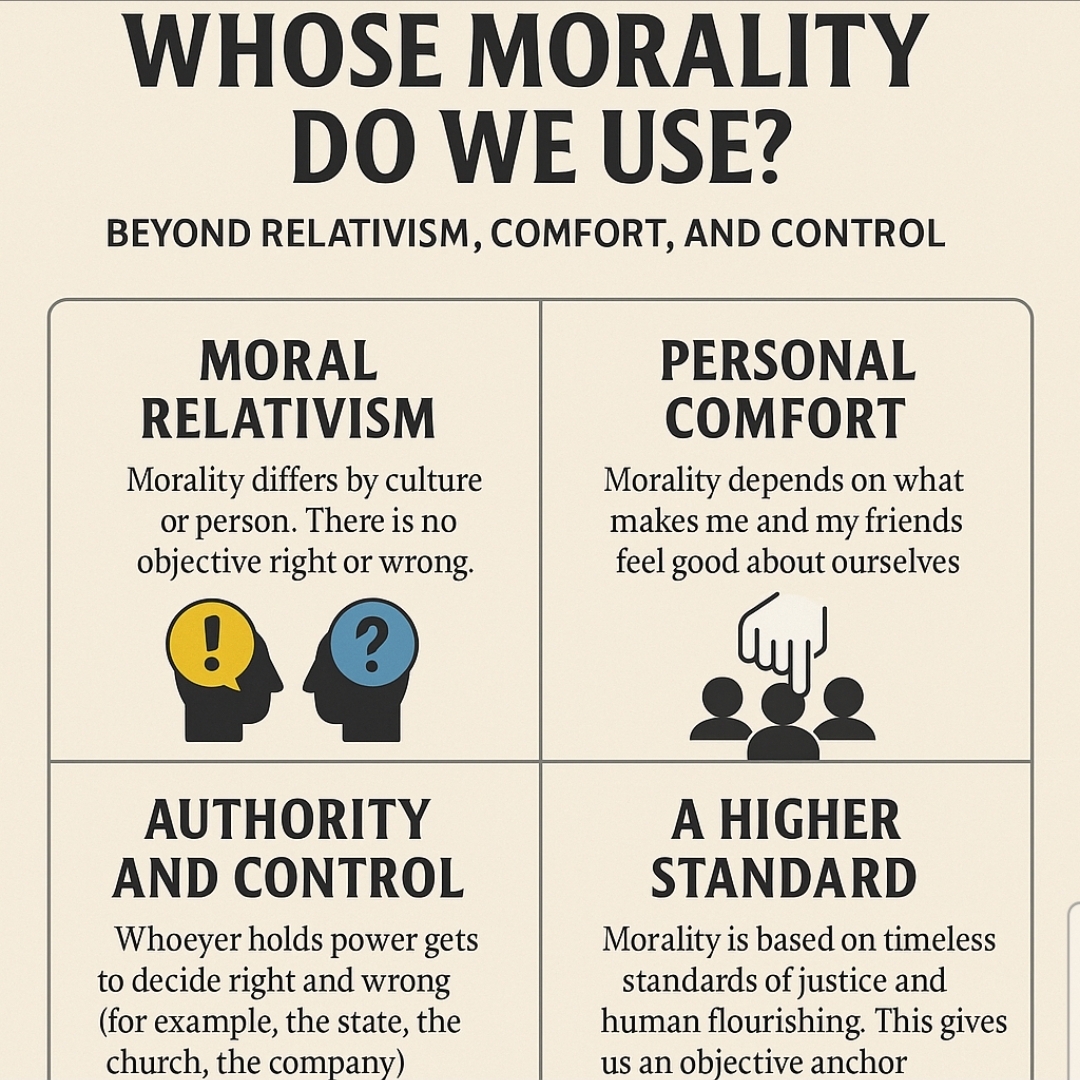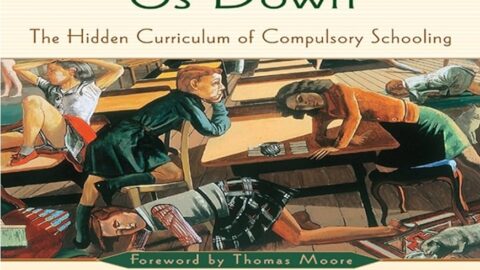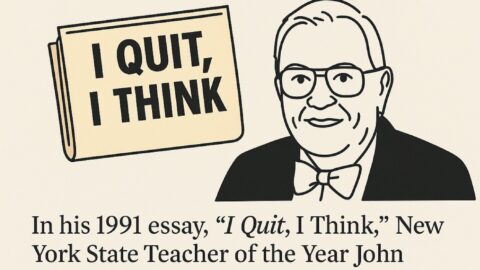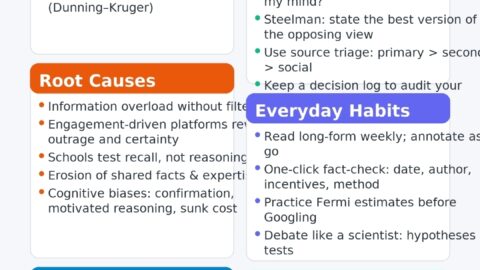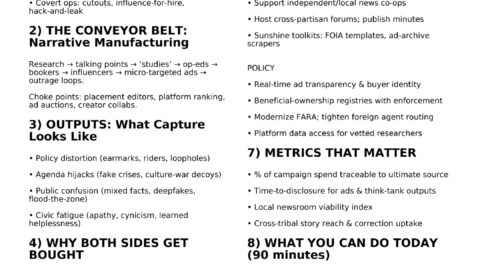The Question of Morality
Every society must ask: Whose morality governs us? For most people today, the default answer is moral relativism—the idea that “right” and “wrong” shift depending on culture, context, or convenience. But relativism cannot sustain justice, because it bends with power, popularity, or propaganda. To move beyond it, we must have a model to locate ourselves: as individuals, families, communities, nations, and even as a world.
In Greek, the word “morality” comes from the concept “ἦθος” (êthos) — which means character, habit, or way of being.
That’s where we get the English word “ethics.”
So when the Greeks spoke of morality, they weren’t talking about rules or external laws (as we often do today). They were talking about the cultivation of inner character — the formation of habits that align with virtue (aretē, meaning excellence).
In short:
ἦθος (êthos) → character, moral nature
ἀρετή (aretē) → virtue or excellence
λόγος (logos) → reason or principle
To the Greeks, morality meant living in harmony with reason and virtue — developing the kind of person whose soul was ordered toward truth, courage, justice, and self-control.
Why Models Matter
Kohlberg’s moral development theory gives us a measuring stick. It shows us not just where we think we are, but where we actually operate. Most people remain at Stage 3 (interpersonal/tribal loyalty)—our morality defined by family norms, friend groups, or political tribes. Few rise to Stage 4 (law-and-order), where systems and rules are trusted to provide stability. But even here, rules can be bent by power, with the Overton Window manipulated to make tyranny look like “order.”
True moral breakthrough only happens in Stages 5 and 6, where individuals evaluate laws, traditions, and cultural scripts against higher principles—justice, truth, conscience, and universal human dignity. These are the rare men and women who raise themselves, as Voltaire observed, “above the ideas of the time.”
The Tyrant’s Strategy
Tyrants understand this. They know that as long as people remain at Stage 3—defined by loyalty to left vs. right tribes—or trapped in Stage 4—blind obedience to rules—the system is safe. Keep the public comfortable, distracted, and divided, and they will never ask the questions that pierce Stage 5 and 6. The Overton Window is moved step by step, normalizing corruption as law, until injustice feels “legal” and resistance feels “radical.”
The Deadly Allure: Comfort as Control
What blocks us from moving higher? Not simply ignorance, but the allure of comfort, pleasure, boredom, materialism, pride/ego, and nihilism. These cultural forces don’t just tempt us at the conscious level; they seep into every layer of the human person:
- Unconscious: Habits form, desires are shaped without awareness.
- Subconscious: Rationalizations grow—“everyone else does it,” “it’s just for now.”
- Conscious: We choose ease over courage, telling ourselves stories that justify it.
- Spiritual: Conscience dulls, prayer or reflection feels hollow, truth becomes uncomfortable.
- Moral: Standards bend to fit tribe or trend.
- Emotional: Guilt and unrest are traded for shallow relief.
- Psychological: Reality is distorted through rationalization and denial.
- Physical: The body keeps the score—stress, addiction, restlessness, fatigue.
The tyrant’s genius lies here: by keeping us fed, entertained, and busy with tribal squabbles, the bulk of humanity never moves beyond Stage 3 or 4.
The Call to Higher Stages
Stage 5 requires seeing beyond tribe. Stage 6 requires acting from conscience, even when it costs. These are the levels where people recognize that laws are not sacred if they serve oppression, and that culture itself can be corrupted by comfort and conformity.
In these stages, men and women awaken to the reality that morality is not relative but anchored in truth. They begin to resist propaganda, question cultural scripts, and bear the weight of responsibility that comes with freedom.
Conclusion: The Courage to See
We live in an age where most measure morality by tribe, comfort, or law. But if we wish to reclaim truth and liberty, we must push upward—through family loyalty, through conformity to law, into the rare air of principle-centered living. Models like Kohlberg’s remind us where we are stuck. Voltaire’s insight reminds us how hard it is to rise. And history reminds us what happens when we don’t: tyrants write the rules, oligarchs reap the profits, and a people lulled by comfort forgets what conscience sounds like.
The only answer is to see—honestly, soberly—where we stand, and to choose the harder path of conscience over the Red Button of ease.

